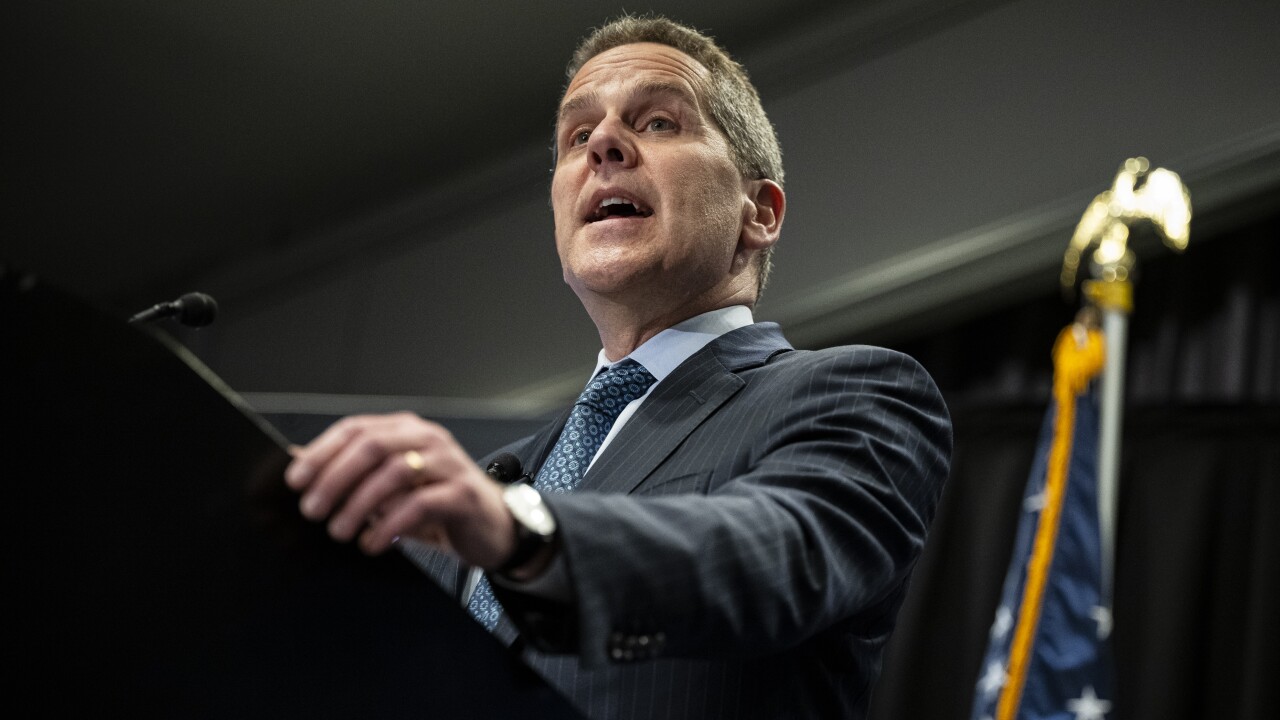Stephen Gordon is thinking big. The question is how close the $460 million of capital he has raised will get him to his lofty goals.
This week Gordon, formerly the chief executive of Commercial Capital Bancorp Inc., announced that he and more than two dozen investors would put that much money into the $270 million-asset Bay Cities National Bank in Redondo Beach, Calif. Bay Cities had been undercapitalized for two years after massive losses in its securities portfolio.
With so much capital flowing in to such a small bank, Gordon clearly has grand ambitions. He says he wants to cast Bay Cities' net across California and into Washington, Oregon, Nevada and Arizona, rename it Opus Bank and take it to $5 billion of assets — for starters.
Gordon joins other prominent investors in pouring cash into struggling banks on the West Coast. Financier Gerald Ford's private-equity engine last month put $500 million of capital into the $7.1 billion-asset Pacific Capital Bancorp. In Washington, Sterling Financial Corp. recently closed a $730 million capital deal involving existing shareholders, private-equity investors and the public markets.
Though failed-bank purchases remain attractive, Brett Rabatin, an analyst at Sterne, Agee & Leach Inc., said all that capital lining up on the West Coast may be a sign the region is ripe for open-bank acquisitions — similar to several big deals that have been announced on the East Coast.
"It seems like everyone is getting ready for open-bank M&A," Rabatin said. "We are probably a quarter or two off, but these guys are certainly loading the coal in the train car."
Rick Levenson, the president of Western Financial Corp., a San Diego investment bank, said more groups like Gordon's are probably forming, which would create brisk competition.
"It is amazing to me the amount of capital that is available," he said. "It is sparking a renewed interest in community banks."
With more bankers seeking expansion opportunities on the West Coast, the challenge for Gordon will be to identify good candidates and win the bidding for them, analysts said.
"Anyone that has raised that much capital should have a wish list of targets," Rabatin said.
Gordon, who said in a recent interview that he is "looking to build a superregional bank," said he is not too worried about rivals. "There is no shortage of troubled institutions," he said.
He wants to pursue a variety of deals — for failed banks, for struggling banks realistic about their portfolios' value and for banks that Gordon described as "stuck." The third group comprises institutions where executives have been unable to expand or where they are tired of the community bank struggle.
Yet his strategy is not entirely acquisitive; the Southern California market, he said, is still primed for organic growth. "Our area used to be dominated by the likes of Wamu, Downey, PFF, Cal National, Vineyard, First Fed and so on. They are all gone," he said. "And they've left a massive void."
One advantage Gordon may have over others seeking to recapitalize struggling banks is that his time won't be consumed initially by working through problem loans at Bay Cities. "The problem securities all get liquidated at the closing," he said. "Otherwise, this is a very clean institution."
As of June 30, noncurrent loans were 1.8% of Bay Cities' total loan portfolio. By comparison, the average ratio for similarly sized commercial banks in California was 4.13%. Bay Cities has set aside just $24,000 for loan losses since the beginning of 2008. Yet it has taken $22.2 million in securities writedowns in this period.
Gordon would not say how much of what he has raised will go toward buying the bank from Community First Financial Group Inc. in Chapel Hill, N.C.
Despite his multistate ambitions, Gordon plans to convert Bay Cities to a California charter because he developed a relationship with the state regulator during his stint as chairman and CEO of Fremont General Corp. during its liquidation in 2008.
Gordon has aggressively expanded a bank before. In 2000, he bought a $40 million-asset thrift that eventually became the $5.6 billion-asset Commercial Capital, before selling it to Washington Mutual Inc. for nearly $1 billion in an all-cash deal in 2006.
If he gets Bay Cities to that size, Gordon said, the company could go public or turn to its shareholders for more capital. Either way, it would not necessarily be the finish line.
"We wouldn't view [$5 billion of assets] as a superregional," he said. "But we will see where we go from there."





